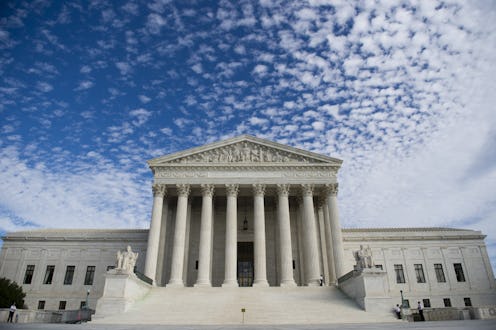News
SCOTUS Will Hear Political District Challenge
On Tuesday the Supreme Court agreed to hear a case that would decide if states should decide political districts based on eligible voters or the total population. SCOTUS will hear the case this fall, and will have a decision early next year — just in time for the 2016 elections.
Political districts are currently determined by population, following a "one person, one vote" rule that has been in place since the 1960s. The original SCOTUS decision was designed so that voting districts were roughly the same size, but they never determined if the district size was limited to all eligible voters, or if there was room for interpretation.
If the court rules in favor of the plaintiffs, political districts would be determined instead by eligible voters. In other words, it would discount people who were not citizens of the U.S., affecting states with large Hispanic populations.
Fittingly, the case originates from Texas, where there are large immigrant populations that cannot vote. The conservative challengers contend that the Texas districts created in 2013 don't follow the "one person, one vote" principle because they included people who were ineligible to vote in a Senate race. Texas voters Sue Evenwel and Edward Pfenninger said that their constitutional right to "one person, one vote" was violated because it counted kids and non-citizens. They apparently felt compelled by this perceived injustice enough to file a lawsuit that will find itself in front of RBG & Co.
This has been a conservative cause célèbre for a reason. If the judge rules in favor of the challengers, it could potentially shift voting power out to rural areas and away from urban city centers, where more non-citizens tend to settle, and there tend to be higher concentrations of children. This could fade some of the concentrated blue to a purple — or even red — for the 2016 congressional, state, county, and local elections.
And just in case there was any doubt that this was ideologically driven, Evenwel is a leader in the Texas Republican Party.
The suit is backed by the Project on Fair Representation, a legal defense fund that was behind the Supreme Court case on affirmative action and has brought multiple suits dealing with racial classification. Essentially, the same types of cases that fancy all people as having equal power, regardless of race, and that racism is dead.
This could fundamentally shake up the voting districts currently in place. And even with the impartial Supreme Court, it'll inevitably mean a partisan win for someone.
Images: Getty Images (1)
